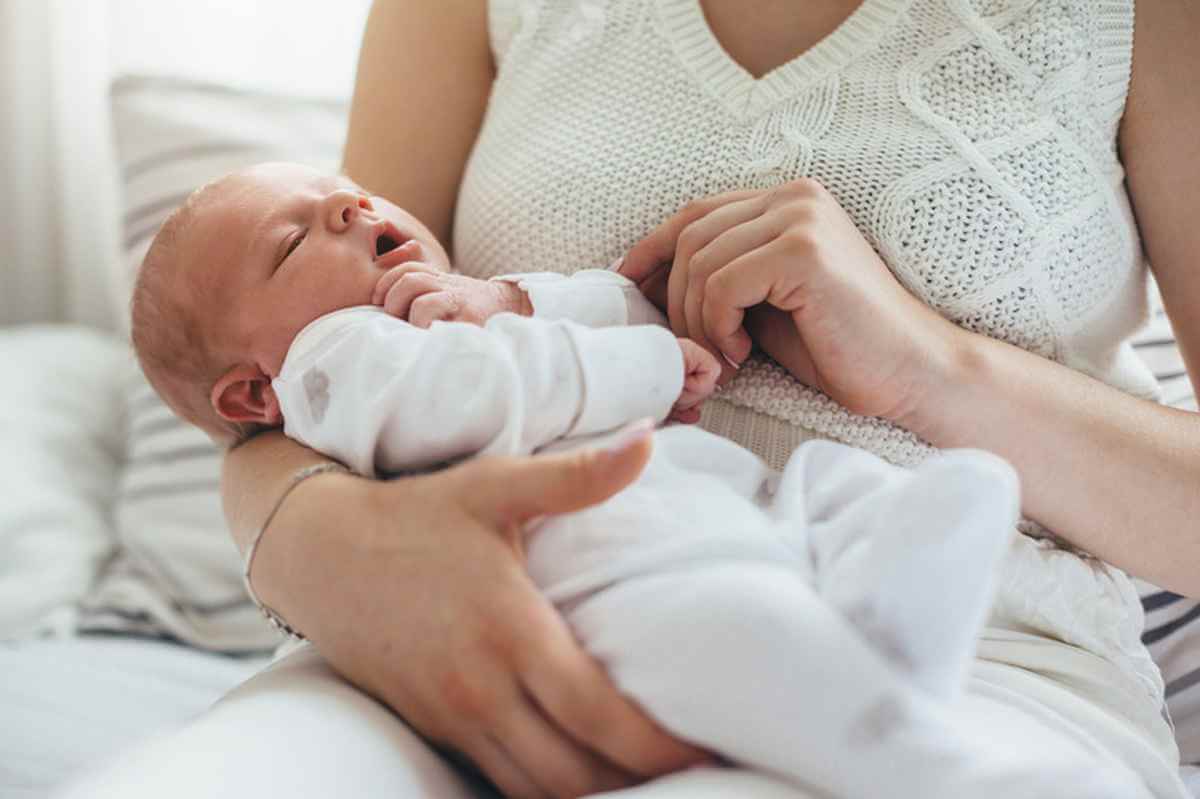Why Your 6-week Check-up is Not Enough

Six weeks after you give birth, you’ll have a check-up with your caregiver.
At this postpartum check-up, women expect a long, thorough chat about their birth, pregnancy, what is happening now and what should happen for the future. But, the reality is your 6-week check-up is NOT enough from a midwife’s and fitness specialist’s perspective.
Saying that, it is an important appointment you definitely shouldn’t miss. While giving birth may be a normal process, some women experience a few health aftershocks and it’s important that they be examined and treated promptly.
The consequences of skipping your postpartum appointment can be serious: incomplete healing, an unwanted pregnancy, an overlooked infection, undiagnosed postpartum depression and more. Taking the time to keep this appointment can pay off in many ways, physically and emotionally.
In addition, 6 weeks seems to be that point when you start to feel like a human being again. For that reason, it’s a good time for your doctor to check in on how motherhood is treating you emotionally as well.
So, let’s look at what should be checked at your 6-week appointment with your caregiver:
1. Your Incision
If you had an episiotomy or a tear during a vaginal delivery, your caregiver should check to see if the area has healed correctly and ask you if you have any pain or any other concerns.
Most incision problems occur within 10 days of giving birth, so if you are concerned in any way with pain, increased swelling, discharge from the wound area and/or fever, please make sure you contact your caregiver.
If you’ve had a c-section, you should have a preliminary incision check-up before you go home from hospital by the midwife and/or your obstetrician and with your MCHN at your first home visit; and another at your 6-week check-up. Again, if you are concerned in any way with pain, increased swelling and discharge from the wound area and/or fever, please make sure you contact your caregiver.
2. Your Uterus, Ovaries, and Cervix
Your doctor may perform a pelvic exam, but this one has a twist — your doctor is making sure that your reproductive organs are returning to their pre-pregnancy state (amazingly, your uterus should shrink back to the size of a fist).
They should also check your uterus for signs of infection, such as tenderness.
Your caregiver may also complete a pap smear at this time as well if you are due.
3. Your Breasts
Your breasts go through so many changes during pregnancy and after delivery that it’s important for your doctor to keep track of what’s normal and what isn’t. First, your doctor may give your breasts a thorough exam for blocked milk ducts, which feel like little knots. These can develop into mastitis, an infection that occurs when bacteria gets trapped in a milk duct. If you have it, the area around the infection becomes red and hot, and you may also develop flu-like symptoms, such as a fever and body aches. This can occur any time postpartum, so report any breast pain to your doctor or midwife. An antibiotic that’s safe for nursing mothers can clear up the infection. Your doctor will also check your breasts for lumps or masses.
4. Your General Health
As you’ve probably guessed, pregnancy affects just about every body function you can think of, which is why it’s so important to get an overall health check. At your 6-week check-up, your caregiver should check your weight and blood pressure, and they may even take your pulse or listen to your chest.
The exam should also address more specific postpartum concerns. You may be asked if you’re still taking your prenatal vitamins; if you’re breastfeeding, it’s especially important that you replenish your body with calcium, iron, and other vital nutrients for a good 12 months after having a baby.
Your caregiver may also check your other organs including your bladder and intestines as pregnancy and delivery can really take their toll on these organs. Your caregiver should ask whether or not you’ve had any leaking urine, extreme bowel urgency, or bothersome constipation.
Women who had special health conditions during pregnancy will likely need follow-up care. For example, if you had gestational diabetes, your doctor may check your blood sugar and suggest continued treatment or a specialised diet if the problem continues.
5. Your Mental Health
Assessing a new mum’s emotional welfare at a postpartum check-up is just as vital as checking her physical health. It’s important to be honest about how motherhood is going and if you’re feeling overwhelmed. Your caregiver may be able to put you in touch with additional help if you are not receiving enough help at home.
You should also undergo screening for postpartum depression. PND is more common these days as the mother is expected to do everything. Motherhood is not easy on its own. So if you are not feeling like YOU, please make sure you let your caregiver know.
Getting Back to Normal After Giving Birth
If all is well with your health and wellbeing, your doctor will likely give you the thumbs up to resume normal activity and safely return to exercise even though you haven’t had your pelvic floor and abdominal muscles assessed.
Your doctor is not the green light to start exercise again – seeing a Women’s Health Physio is!
And, regardless of the type of delivery you had, your doctor will probably tell you it’s safe to start having sex again (although it’s probably the very last thing on your sleep-deprived mind!) However, you’ll get around to it sometime, so you’ll need to have a talk about contraception.
To give the new mother a chance to heal, it’s generally not recommended to get pregnant in the first year after giving birth. For a vaginal delivery, wait one year minimum and two years for a c-section.
Before you leave your doctor’s office, be sure to take the opportunity to ask any lingering questions you may have about your new post-baby body — and new life as a mum. Getting the answers you need will make the transition to motherhood that much smoother.
Recap of Your 6-week Check-up
At 6-7 weeks post birth you should have your 6-week check up with your caregiver.
At this appointment they SHOULD check and discuss:
- Your perineal area if you had stitches or your wound if you had a c-section
- Ask you about how you are feeling
- Ask how your feeding is going if breastfeeding or if bottle-feeding
- Any concerns post birth
- Your breasts, uterus, ovaries, cervix
- They will discuss your contraception options
- Discuss any further follow up if there were any issues during the pregnancy or birth
- Returning back to exercise
They will NOT check:
- Your pelvic floor internally
- Abdominal separation
And they may not even discuss your birth and WHY certain things happened which is important for you to know for your recovery and Safe Return to Exercise.
Seeing a Women’s Health Physio After 6-weeks Post-birth
I highly recommend you see a Women’s Health Physio between 6-8 weeks post birth whether you are planning to return to safe exercise or not so you know where your body is up to after having a baby, despite what type of birth you had. You can find a WHP near you here.
It is vital that you know how to activate your pelvic floor correctly to assist with healing and to minimise chances of incontinence.
It’s also important that you know how to activate your lower transverse abdominals to help heal abdominal separation and to minimise any future back pain
At your appointment they can use real-time ultrasound so you can see that you are activating your muscles correctly.
If you want to have more babies it is vital that you are looking after your body and healing it to minimise any complications in future pregnancies.
And, most importantly, when you are ready to commence safe return to exercise after your 6-week check-up, make sure you seek advice and guidance from a qualified trainer. Find a MumSafe™ Trainer near you.
Anita Guerra is a Registered Midwife and Certified Fitness Trainer. She runs Fit For 2 in South Morang, Victoria. To find out more about her and get in touch, click here.
You can also find her on Instagram.
Article references
https://www.parents.com/pregnancy/my-body/postpartum/what-to-expect-at-your-6-week-postpartum-exam
Anita Guerra runs Fit For 2 in Victoria, . Learn more about Anita and Book your Trial today.
